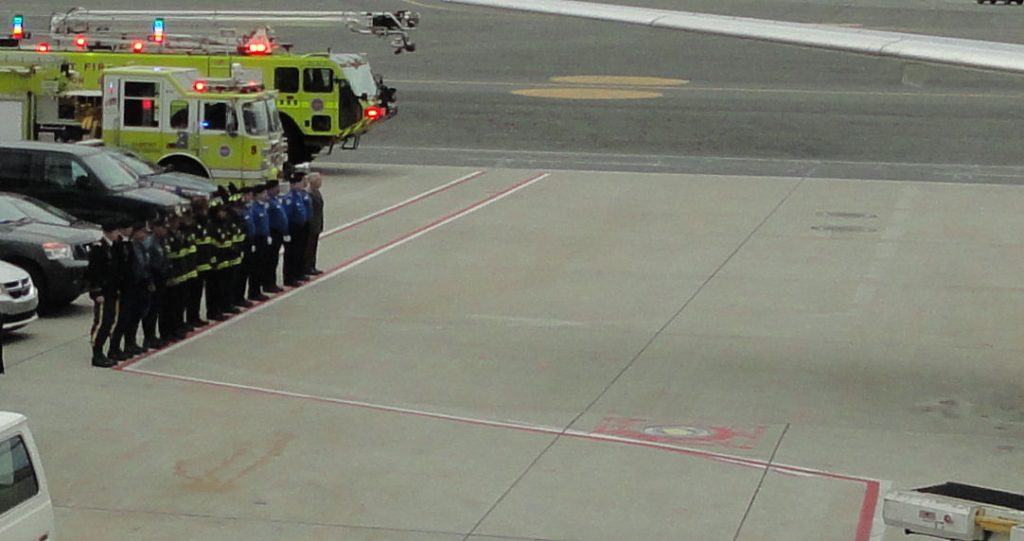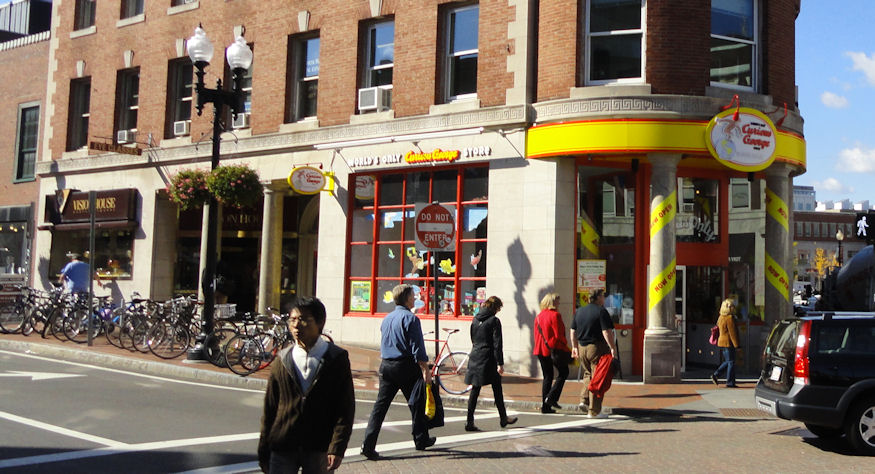
I have always spent a lot of time in airports and on airplanes, but never as much as now. I travel a couple times a month and sometimes to the U.S. Trips to the U.S. are a relatively new part of my FS life. Usually, we go somewhere and stay for a time. But my involvement with higher education has been in support for Science w/o Borders drawing me to the U.S. We brought a group of Brazilian university leaders to the U.S. in February and will bring a similar one in November. I went to Houston for an educational conference and just got back from the Harvard-Laspau meeting in Cambridge.
This year, I have flown enough to become a silver medallion member on Delta. After my next trip, I will achieve gold. This has a couple advantages, the most important being you get to have better access to seats, especially exit rows.

It is better to get to the airport an hour before you need to rather than a minute late. I always get to the airport way early if I can. I don’t mind sitting in the airport; in fact I like it. I can think, write, read or just sit around. It is a good time for reflection. We do not spend enough time being by ourselves and reflecting on things.
I also don’t mind flying as much as I used to. I think this is part of my general increase in laziness. It used to be that I could not stand to sit around for more than a few minutes. Now it doesn’t bother me much. One thing that really helps is scheduling. I made a list of things I should do on the plane. I don’t really do them, but the procrastination makes the time seem to move faster. Another key is the I-pod and audio books. That is the most important factor. I find it hard to read on planes, but it is easy to listen to the audio books.
Reading in the old fashioned way is still important. When traveling in Brazil, I tend to read through news magazines in Portuguese that I would not usually read through if tempted by other attractions and I can buy them right in the airport. I read through the Brazilian issue of HBR. It is easy to read because many of the articles are translated from English (so they keep some of our format). Even the ones in native Portuguese are in the business article format. The New York Times is going to publish in Portuguese soon. That will be easy and useful to read. It is much harder to read literature in a foreign language.
I just finished a biography of Hadrian (in English). This took me four years. Yes, four years. I only read it on airplanes and then not so much. I found four airplane tickets stuck in the book as bookmarks. It was a good book and I learned a few things. The total travel time (counting airports and transits) is more than 20 hours, so there is lots of time. I will kind of miss bringing “Hadrian” along. I rarely travel with fewer than three books, since my interest wanders. This time, I had “Hadrian,” “How to Deliver a TED Talk,” and “Swerve” about the philosophy of Lucretius and how it helped form modern thought. I read a few pages of each, enough to finish “Hadrian.” Now I can move to Marcus Aurelius.
Anyway, airports are giving me a good education. It is important to be unconnected sometimes and have the gift of boredom. It is akin to when the Marine explained to me that I had to embrace the suck. You can easily turn liabilities into assets if you just have the right attitude.
My on top picture is a ceremony receiving the body of an American killed in action. I did not take a picture of the actual casket or the family, since I thought that was not right to intrude. It was very sad watching. The next picture is from what they say is the world’s only Curious George shop. It is on Harvard Square and I can easily believe that it is indeed the world’s only Curious George shop.
